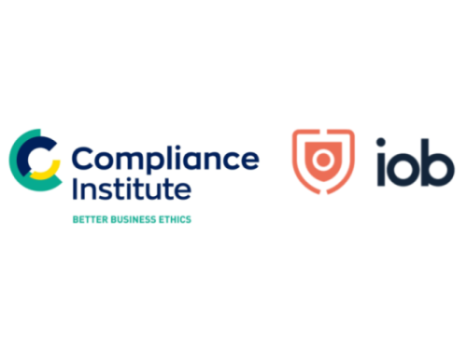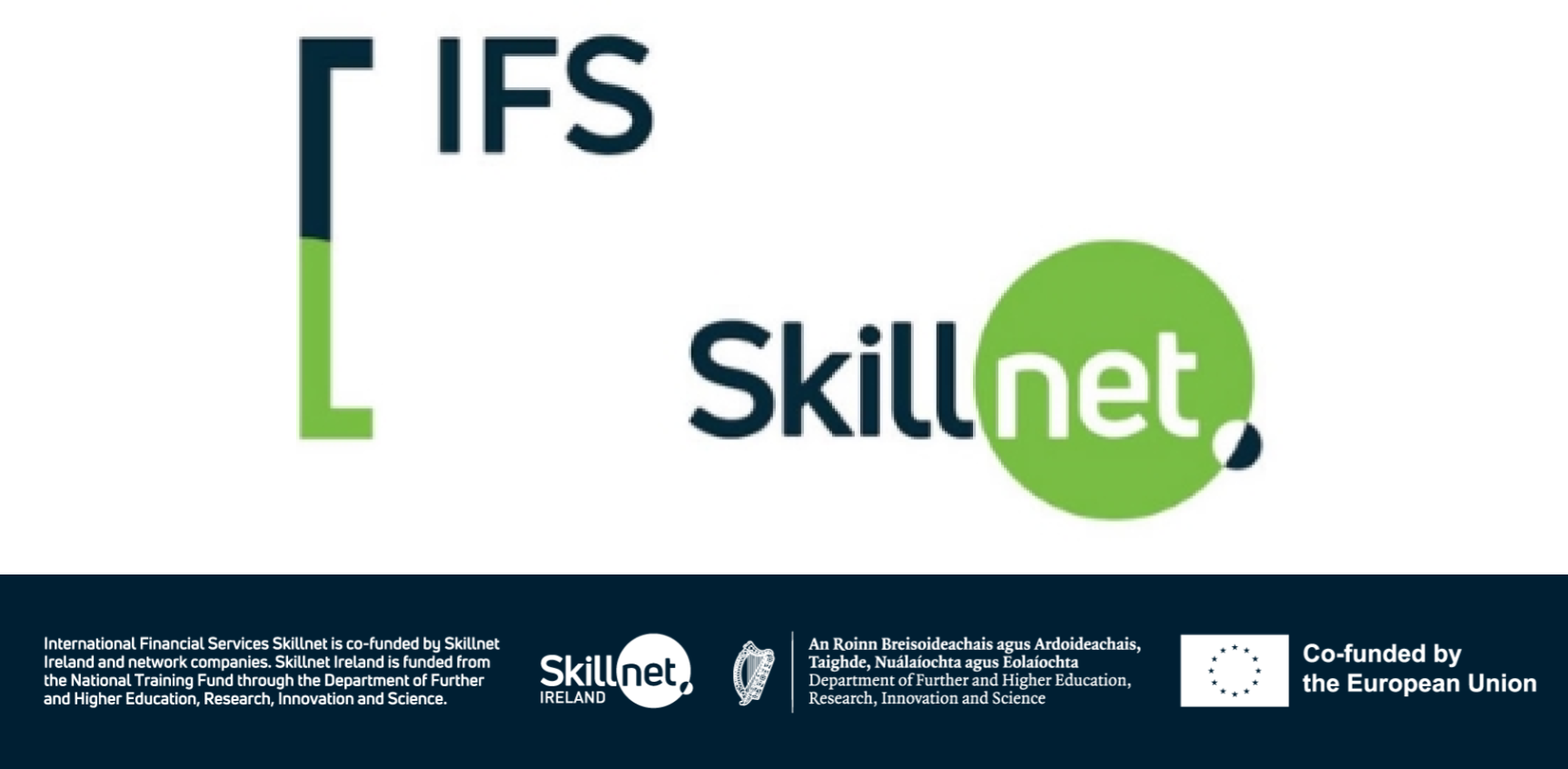University College Dublin
Express an interest
If you are interested & require further information, we will email you a copy of the programme brochure.
Before you continue...
As you are not registered with us, you will need to upload proof you can enrol to this programme.
I know, let’s sign upI have an account, let me sign in firstMSc in Compliance
At a glance
The MSc in Compliance is designed to give Compliance and other control professionals the knowledge and skills they need to implement effective compliance structures and enhance the overall internal governance structures of organisations.
Who is it for?
The MSc in Compliance is designed to give Compliance professionals and those working as part of the three lines of defence, the knowledge and skills needed to implement effective compliance and enhance your company’s overall internal governance structures.
This programme will provide you with the multidisciplinary skills to participate more effectively in leading compliance functions and to understand the practical application of compliance best practices.
It has been developed for those who work in assurance and control functions and will be of particular interest to Compliance managers and those aspiring to these roles as part of their career development.

How you will benefit
This programme will support your personal and professional development. It will;
Provide you with the opportunity to develop comprehensive knowledge and expertise across a broad curriculum in Compliance and regulatory risk
Develop an in-depth understanding of the requirements and responsibilities of ensuring robust compliance within financial services firms, while maintaining the trust of customers and wider stakeholders
Develop your thinking on key business challenges and ethical dilemmas faced by management when striving to improve business performance in regulated environments
Advance your ability to blend theory and practice in complex and specific situations to improve business performance
Enhance your business judgement, critical analysis and problem solving skills.
Continuous Professional Development
If you hold an IOB designation or a designation managed by IOB, CPD hours may be awarded on successful completion of this programme.
IFS Skillnet

This programme has IFS Skillnet funding available for certain companies. You should check if your company has IFS Skillnet approval. IFS Skillnet price is €4,784 for the first academic year (€10,543 for the programme in total).
Tax relief may be available for candidates who are paying fees in a personal capacity. Further information is available from www.revenue.ie.
Funding it subject to availability
MSc in Compliance IFS Skillnet form Year 1
MSc in Compliance IFS Skillnet form Year 2
View the IFS Skillnet Checklist
Note: students without IFS Skillnet funding should apply using the Apply Now button above.
Assessment
Assessment is a combination of continuous assessment and written exams.
IOB programmes are largely delivered and assessed online. Students should ensure they have appropriate equipment (laptop), and that appropriate software (including MSOffice: Office and Word) is available to them to participate in the programme and related assessments (continuous assessments and exams)
Award
MSc in Compliance is accredited and awarded by UCD.
This is a major award and at level 9 on the National Framework of Qualifications.
Students who leave the programme on successful completion of the first six modules are eligible for the exit award Graduate Diploma in Compliance from UCD (postgraduate level 9).
Progression
The Professional Education Framework is a flexible education pathway that provides learning and development opportunities wherever you are in your career. You can access the framework at any step to take specialist qualifications depending on your career and learning need. Please click here to view the 2024/25 portfolio of programmes.
Duration & delivery
Online lectures.
Fees
The fees are €6,380 for the first academic year (€14,060 for the programme in total).
Next intake
Spring Trimester - (January 2026 - May 2026)
Trimester start date
3 February 2026
When will IOB trimesters take place?
Closing dates
Application closing date - 23 January 2026
Registration closing date - 4 February 2026
What is the difference between the application and registration closing date?
Contact
For more information please contact the Programme Manager, Mikeala White at [email protected]
Modules and learning outcomes
Module is running in Spring Trimester
Ethics and Corporate Governance
(NFQ level 9, 10 ECTS)
This module looks at the corporate governance best practice principles and their application in both a financial services and a general organisational setting. It also aims to provide students with a deeper understanding and appreciation of the ethical dimension of corporate governance and, in doing so, stresses the importance of corporate culture to the longevity of organisations. In considering the behaviours and decision-making processes of individuals, groups, and specifically those charged with governing organisations, the module offers approaches for dealing with common ethical dilemmas and ethical crises.
Module is running in Spring Trimester
Managing for Compliance
(NFQ level 9, 10 ECTS)
The modules looks at compliance sound practice and principles and their application in both a financial service and a more general organisational setting. It considers the growing role and responsibilities of the compliance officer and function and looks at challenges faced in the fulfilment of these responsibilities. The module will introduce a number of specific compliance topics and suggested methodologies to the student but will also require input from the student’s experience and reading to develop the topics and challenges of the elements of compliance examined.
Module is running in Autumn Trimester
Financial/White Collar Crime Prevention
(NFQ level 9, 10 ECTS)
This module considers the offense of financial/white collar crime which is committed by or against an individual or corporation and results in a financial loss. The various forms this type of crime can take are examined and best practice techniques to manage and control the risks are discussed. The module will introduce you to a number of topics and suggested methodologies, but also requires input from your professional experience to develop a best-practice approach in order to counteract, hinder and ultimately safeguard individuals and corporations from crime in the financial system.
Module is running in Autumn Trimester
Data Protection Policies and Procedures
(NFQ level 9, 10 ECTS)
Irish and EU data protection law changed when the EU’s General Data Protection Regulation (GDPR) came into effect in 2018. This will impose a heavier compliance burden on data controllers and will grant data subjects enhanced rights. Controllers will be held accountable and have to keep records, conduct impact assessments and appoint Data Protection Officers. Supervision and enforcement will be enhanced. This module will provide students with the tools to understand and navigate an increasingly complex and challenging environment for the controllers and processors of personal data.
Module is running in Autumn Trimester
The Regulatory Landscape
(NFQ level 9, 10 ECTS)
This module discusses the rationale for financial services regulation. It also provides a framework of the regulatory landscape from a local, European and global perspective. You will be able to critically analyse and evaluate the regulatory response in the wake of the global financial crisis. The module will consider emerging trends impacting the compliance professional.
Module is running in Autumn Trimester
Designing an Internal Governance Framework
(NFQ level 9, 10 ECTS)
The module seeks to establish a best practice approach in the design of internal governance frameworks for financial service providers. This applied module considers all aspects of the three lines of defence model and the board director’s interaction with this framework. This module will build on the Ethics and Corporate Governance module in exploring how good governance should be embedded in the organisation. These considerations are placed in the context of the organisation implementing strategy devised by the board of directors within the risk culture and risk appetite.
Module is running in Spring Trimester
Compliance Leadership
(NFQ level 9, 5 ECTS)
This is a new module and aims to enhance and further develop the soft skills of the compliance professional. It will look at Leadership skills, Conflict Negotiation techniques and Communication skills to support the compliance professional in managing their responsibilities across the organisation.
Module is running in Spring Trimester
Research Methods and Methodology
(NFQ level 9, 5 ECTS)
The purpose of this module is to prepare students to be able to plan and execute an action based research project. It begins by developing students’ ability to synthesise a literature review. It then develops their ability to understand, critique and select an appropriate methodology, and generate data with the aim of evaluating findings from an academic and professional perspective.
Module is running in Spring Trimester
Applied Project
(NFQ level 9, 20 ECTS)
The applied project provides an opportunity to integrate your learning from previous modules. It is a comprehensive project with a strong focus on practical application. By assimilating all the skills and knowledge you have acquired from the programme, the project’s aim is to enable you to critically evaluate an existing compliance framework. It will also enable you to design and make recommendations on how to develop an optimal compliance model and integrate it effectively within the internal governance framework of the organisation. Note: The Applied Project is double-weighted (20 ECTS rather than 10 ECTS) and accordingly, the workload is double that of a standard module.
Professional designation
Individuals who complete the MSc in Compliance are entitled to apply for the designation ‘Fellow of Compliance Institute’ and use the designatory letters FCI. Continued use of this designation is subject to meeting The Compliance Institute's Continuing Professional Development requirements. FCI is the highest-level designation The Compliance Institute offers its members.
UPCOMING INTAKES
Spring Trimester (January - May)
Trimester start date - 3 February 2026
Application closing date - 23 January 2026 (Application Date | IOB Help Centre)
Registration closing date - 4 February 2026 (Registration Date | IOB Help Centre )
Key dates
Entry Requirements
The minimum entry requirements to the MSc in Compliance are as follows:
An honours degree (min. 2.2 L8 NFQ) in a relevant area in a business, legal or cognate discipline and at least 3 years' relevant work experience.
or
Applicants who do not hold a primary degree but have relevant work experience at a middle or senior management level are eligible to apply and will be considered on a case-by-case basis.
Professional body membership
You must be a current member of the Compliance Institute, or become a member, to undertake this programme.
To become a member, or renew your membership of the Compliance Institute click here. When applying for the programme you will be asked to upload a receipt of your Compliance membership payment.
English Language Requirements
Teaching in IOB is through the medium of English; therefore, applicants must demonstrate a high level of competence in the English language to be admitted to study. Students whose native language is not English are required to demonstrate their proficiency in the language and must provide verifiable evidence of that proficiency. Further information on these requirements is provided in the IOB English Language Policy
Your lifelong learning partner
Join the IOB Community
Begin your journey with IOB today and unlock exclusive member content, events and insights!
Join IOB